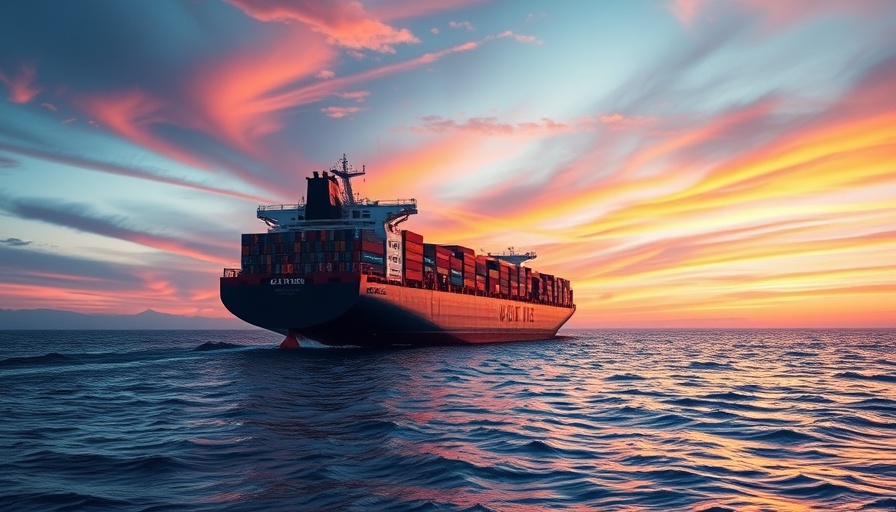
Adapting to the New Reality of Ocean Freight Procurement
In the rapidly evolving landscape of logistics, businesses are rethinking their procurement strategies for ocean freight in 2025. A recent poll by Xeneta revealed that **6 in 10 businesses** have fundamentally altered their approach to tendering. This shift underscores a significant transformation driven by market volatility and geopolitical tensions, such as those affecting the Red Sea region. According to Thorsten Diephaus, VP of Strategic Alliances at Xeneta, the prevailing tender strategies used over the last two decades are being reconsidered. It's time for companies to throw out outdated methods and adapt to the new reality, which asks whether agreeing on fixed long-term rates makes sense anymore.
Emerging Strategies: The Growth of Index-Linked Contracts
One of the notable trends emerging from this shift is the use of index-linked contracts that allow businesses to track freight rates against real-time market indicators. This approach has gained traction as it provides more flexibility amid changing conditions. Senior Shipping Analyst Emily Stausbøll points out a growing interest among shippers and freight forwarders in utilizing such strategies, particularly as the data underlying these contracts becomes crucial for their implementation. As companies brace themselves against unforeseen disruptions, the ability to monitor and adjust freight costs is essential for maintaining resilient supply chains.
Preparing for Challenges: Insights from the Freight Sector
Despite these evolving strategies, challenges persist. Global supply chains are increasingly strained by geopolitical events, which can disrupt trade routes significantly. Analysts warn that tariffs, such as proposed fees on Chinese container ships, could lead to unexpected consequences like port congestion. To navigate these turbulent waters, experts recommend diversifying supplier relationships and developing contingency plans to swiftly adapt to changing dynamics, enhancing operational resilience.
The Role of Technology in Sea Freight Procurement
The logistics industry is also harnessing technological innovations. As we head towards 2025, digital transformation will be crucial. Companies that implement AI and automation in their procurement processes not only improve efficiency but also gain valuable insights into market trends. Investing in such technologies can lower costs and make supply chains more transparent and agile, ensuring that logistics managers stay ahead of the curve amid uncertainties.
As logistics professionals, staying informed about these ongoing changes is critical. By exploring innovative procurement methods and technological advancements, companies can position themselves for success in a complex, ever-changing maritime landscape.
If you're in the logistics sector, now's the time to re-evaluate your procurement strategy to better navigate these challenges. Explore how these new methods can enhance your operations and improve your firm's capacity to adapt.
 Add Row
Add Row  Add
Add 




Write A Comment